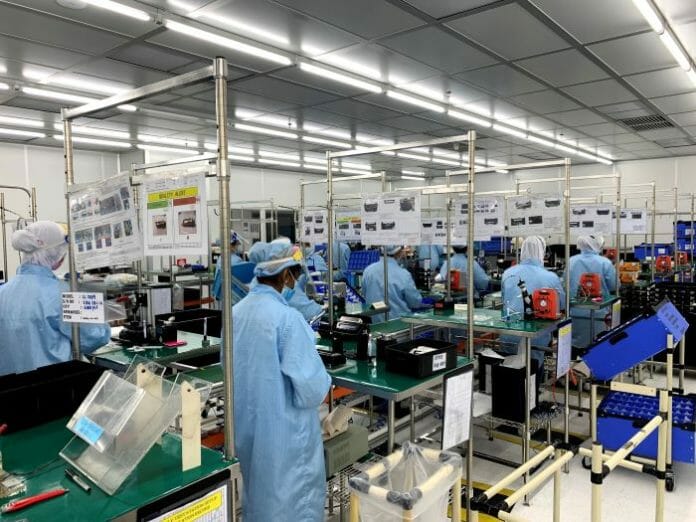Malaysia’s Manufacturing Purchasing Managers’ Index (PMI) remained subdued in July (47.8; Jun: 47.7), indicating a weak start for the 3Q23, though the index was slightly higher compared to the previous month, it remained at contraction level (below the neutral level: 50.0) for the eleventh consecutive month or since September 2022.
Kenanga Investment Bank weighed in today (Aug 2) on the matter stating the weakness in the manufacturing industry is primarily attributed to weak global demand conditions.
There exist subdued demand conditions amid weak client confidence, the bank’s economic viewpoint report stated, which led to a slowdown in output production where new orders eased sharply since January 2023 due to a slowdown in demand which moderated markedly since January 2023.
Similarly, new export orders moderated further and at the fastest rate since May 2020. And, Consequently, output levels fell for the twelfth straight month but at the same pace seen in May and June, as production volumes were scaled back.
Kenanga said cost pressures persist amid exchange rate weakness where input costs accelerated for the fourth month in July, reaching the highest since February.
This was associated with rising raw material prices amid weaker local currency, leading to higher prices for imported items.
Nevertheless, output prices were relatively unchanged, with some firms slashing selling prices to stimulate demand.
Business sentiments were softened, but the outlook remained positive where sentiment was relatively muted, but manufacturers remained optimistic that demand conditions would normalise over the coming 12 months, as reflected by the 25th straight month of optimism for future output.
Employment continued to fall as firms scaled back hiring due to the non-replacement of voluntary leavers. While, manufacturing conditions among major economies deteriorated in July.
In the U.S. (49.0; Jun: 46.3), flash manufacturing PMI was up to a three-month high but remained in the contraction level, reflecting a persistent deterioration in the manufacturing sector due to weak demand conditions.
In China (49.2; June: 50.5), the Caixin Manufacturing PMI fell below the neutral level for the first time in three months, indicating a struggling growth momentum amid soft global demand.
Kenanga IB, in this light, maintains their 2023 GDP growth forecast at 4.7% (2022: 8.7%) citing the weaker PMI reading in July is in line with their expectations that the manufacturing condition will remain weak in the 3Q23 and would potentially spill over towards the end of the year due to the global economic slowdown and the waning lower base effect recorded last year.
This is expected to weigh on the 3Q23 GDP growth outlook, which Kenanga IB forecasts to moderate sharply to 3.4% from an estimated 6.0% in the 2Q23 (1Q23: 5.6%).
Kenanga IB also expects domestic demand to remain resilient and support overall growth. This is mainly due to the continued recovery in the tourism-related subsector largely backed by the resumption of international tourism and the steady labour market condition, as reflected by the lower unemployment rate as well as a decent increase in household income.
However, the bank acknowledges the lingering downside risk to the growth outlook, mainly coming from the external sector.










